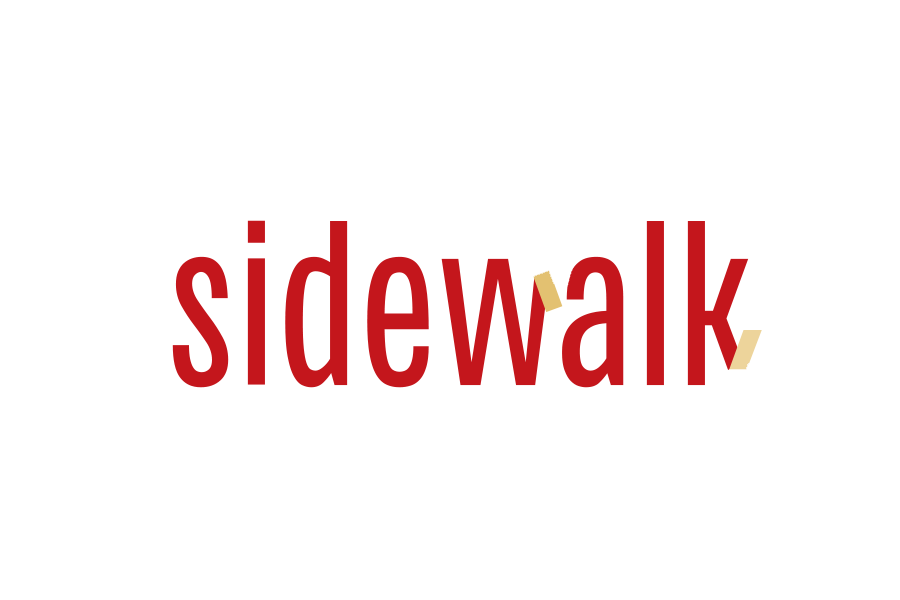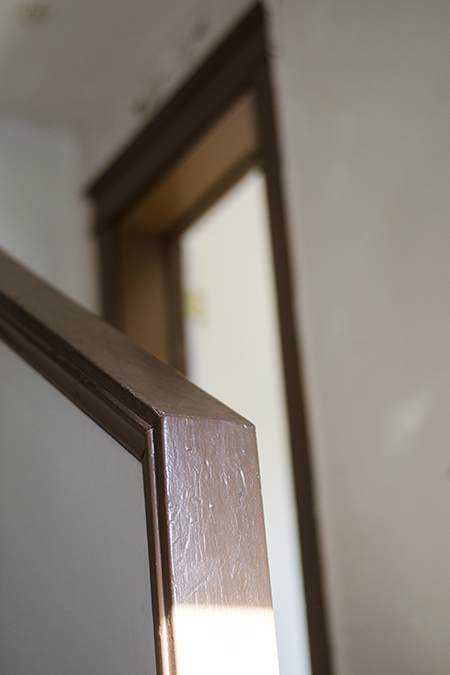David Smeltz is working full-time. He’s teaching martial arts and meditation. He’s written a memoir about his path through drug and alcohol recovery.
And, in his spare time, when other busy people might be content to watch television or catch up on lost sleep, he’s in the process of rehabbing a building and launching a nonprofit on Buckeye.
Within my first few minutes at 11910 Buckeye – the future home of Clean House – two things become clear. First, David’s determination and dedication are deeply linked to a strong sense of purpose. Second, David’s vision has captured the imagination of an army of supporters who are helping in this effort.
While the building is still very much in process, there are clear signs that it’s coming together. Hot water tanks and toilets are being bought. Doors and window blinds have already been purchased. Dedicated volunteers have scraped, plastered, worked on plumbing and brought electricity back to the formerly vacant building.
It’s the kind of transformation of physical space that’s pretty special in its own right, particularly on a street like Buckeye, where vacancy rates remain stubbornly high. But this project is about more than restoring a building. It’s about restoring lives and community.
As we walk through the space, with walls flanked by donated couches and beds, David explains that “my real focus is recovery. I want to have guys stay here who’ve already gone through treatment. I want to give them an opportunity to live in a sober environment, build up a recovery and avoid relapse.”
When completed, the building will provide a safe and welcoming environment for that process – through supportive housing for six to seven residents, as well as a range of support services and training. Next door, a small clothing store will provide the community with low-cost, high-quality clothing and bring revenue back into the nonprofit.
It’s a carefully considered, comprehensive approach – one that offers daily 12-step meetings but also prioritizes martial arts and meditation classes for both residents and the broader community. It’s a model that seems to point to David’s belief in the power of cultural and community activities.
He grew up around arts and culture. His parents met at Karamu House, where Langston Hughes once described his father as an “amazing new talent”. While David’s father wasn’t always around as he was growing up, he was well-aware of his performing career. His mother was a serious student of Tai Chi (traveling to Beijing as part of that practice), played piano and always had music going in the house. When David started to gain success as a musician in his own right, her only request was that he learn to play Harry Belafonte’s Day-O for her.
It’s not surprising, then, that David would be a champion for celebrating the Buckeye area’s culture: “In an area like Shaker Heights or Cleveland Heights, the arts are taken for granted. In the inner city, in Buckeye … all of the cultural aspects of this community should have been getting celebrated years ago.”
That interest in Buckeye is strengthened by his long connection to the neighborhood. From the third grade on, when he moved to the outskirts of Shaker Square, Buckeye has had a lot of meaning for him. He learned his first Hungarian swear word here. A friend’s grandmother would make him nut rolls every Christmas. In the mid-70s, he worked at Qua Buick, just off of Buckeye.
He fondly rattles off a list of neighborhood businesses that are ingrained in his memories of growing up and early adulthood – Settler’s Tavern, Zesty Pizza, Gypsy Cellar, Lucy’s Sweet Surrender.
Buckeye is also deeply ingrained in his own experiences with alcohol use. “By 17 and 18,” he shares, “I knew places on Buckeye where I was able to buy beer underage. I used to party up and down this road.”
As he grew older, as restaurants and stores he grew up with closed or moved away, he became increasingly sad about the condition of the neighborhood.
Today, he explains, “there are not a lot of independently-owned businesses, with the people living in the neighborhood supporting them. That’s what we need in the community to keep money in the community and build it up.”
Already, before its doors have even opened, he and Clean House’s board are thinking creatively about how the facility can best fulfill that kind of neighborhood promise. Inviting neighborhood kids in for programming can give them access to positive male role models, while helping men living in recovery to “re-learn to be fathers – to be the best people they can be.” Community engagement with Clean House can help people develop a deeper understanding of the challenges individuals living in recovery face – and can encourage people to pursue their own personal recovery.
And by placing community martial arts and meditation training at the core of the organization, Clean House can get community members thinking more about the health decisions they make. As David explains, particularly in low-income communities, “you can put a liquor store on a lot of corners and a lot of fast food places and not be self-conscious about your health or what you’re eating … Because it’s pretty much a kind of day-to-day survival.”
I ask him whether he’s experienced any skepticism about those intentions – whether people might not see the value of martial arts as a core component of drug and alcohol recovery or community revitalization.
“The people who are skeptical about the model,” he replies, “are people who don’t live in this area, people who are more on sidelines watching. We’ve gotten nothing but positive response with people up and down the street.”
His own personal experiences suggest that martial arts and meditation have been far more than a frill – that in his own recovery, it’s been a meaningful investment in rebuilding body, mind and spirit.
“They gave me a release. Getting clean and sober, a bunch of things circulate through your head. Martial arts helped me focus on just one thing, and it helped me persevere at something. And meditation has been an oasis for me, just to be able to sit with myself.”
He leans back against the wall, adding, “It’s one thing an addict isn’t able to do, sit with ourselves. Mostly because we don't like ourselves very much.”
We’re wrapping up our tour of the building, looking at bedrooms overlooking balconies and rooftops along the street, and it’s visually clear just how integrated Clean House could become in the broader community. It’s a powerful backdrop for David’s closing thoughts about how personal recovery and community recovery are intertwined.
“Getting outside of ourselves and helping someone else – being of service – a by-product is feeling good about ourselves.”
“When you’re coming into recovery, it’s hard to open up to other people. Being part of this environment, being part of the community … It’s going to benefit the guys.”
“If you don’t feel like you’re being part of something, you don’t have much respect for yourself and your community.”
As part of the Sidewalks of Buckeye Showcase, David will be offering two free classes in the basics of Liu Seong Gungfu, Kuntao and Tai Chi at Passport Project. For more information on this and other events, check out our event page.
Can’t make it to the events but want to support Clean House’s mission? Consider purchasing David’s book or making a donation to the nonprofit.










